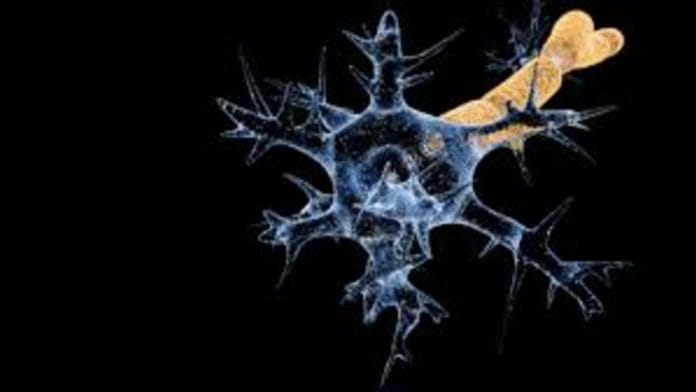Mumbai: Pune is currently witnessing an outbreak of Guillain-Barré Syndrome, a rare nerve disorder. As of Thursday, health officials had recorded 67 cases, of which 13 patients are on ventilator support. Most of the patients are from Pune district.
Guillain-Barré Syndrome (GBS) is an auto-immune neurological condition where one’s own immune system attacks one’s nervous system. Authorities suspect the outbreak is linked to infections caused by the bacteria Campylobacter jejuni, which is transmitted through contaminated food and water.
The Pune Municipal Corporation (PMC) has set up a rapid response team to monitor and investigate the sudden outbreak. Initially, 24 patients were reported in Pune, most of whom are in their 30s.
ThePrint contacted Dr Vaishali Jadhav, assistant health officer at PMC, but she refused to comment.
Also Read: In Jammu’s Budhal, fear grips villagers in wake of 17 ‘mysterious deaths’ in 45 days
What is Guillain-Barré Syndrome?
GBS is not a new condition and has been around for a long time, said Dr Avinash Bhondwe, former president of Indian Medical Association (IMA), Maharashtra.
“We have even studied about it in medical college. Since it is an auto-immune disease, people normally get it after they have been infected by some other viral or bacterial disease,” he told ThePrint.
Health experts also pointed out that GBS, by itself, is not contagious.
In the case of the Pune outbreak, GBS is suspected to have been associated with infections caused by Campylobacter jejuni, which occur after consuming contaminated water or food. This bacteria is commonly found in the intestines of animals, and spreads to humans through consumption of undercooked or uncooked meat, dairy products, or non-potable water. It may lead to diarrhoea and abdominal cramps.
Dr Bhondwe, quoted earlier, explained that GBS affects the nervous system. Weakness can start from the face or neck and spread downwards, or start from the lower limbs and spread upwards.
GBS also causes inability to walk or lose one’s balance, often leading to paralysis. As it moves upwards, the affected individual is not able to control their urine or stool. It can also lead to serious respiratory conditions, difficulty in swallowing and breathing, and numbness in the body.
According to the Neurological Society of Pune, which has issued a public alert about the GBS outbreak, the condition usually affects just 0.1-2 per 1,00,000 people per year.
“However, in the past 1-2 weeks, (there has been) a noticeable rise in cases in Pune with many individuals reporting diarrhoea or respiratory symptoms i.e. cold and cough before the onset of GBS. Authorities are actively investigating the outbreak, while neurologists and doctors are providing the essential treatment,” the Neurological Society of Pune said in a press note.
“We assure you that this is a treatable condition and urge everyone to not panic,” it added.
Symptoms of GBS & prevention amid current outbreak
Symptoms include weakness in the face, neck or lower limbs. Difficulty in breathing and distorted vision are serious symptoms of GBS that require hospitalisation, Dr Bhondwe said.
The illness can start suddenly and progress over 2-4 weeks. In severe cases, patients require ICU admission and ventilator support.
According to Dr Bhondwe, while symptoms of GBS can become quite serious, the condition is treatable with timely medical assistance.
“Diagnosis is done by a CSF (cerebrospinal fluid) examination, which is done through a lumbar puncture. In the case of GBS, a CSF examination shows elevated protein. What actually happens here is that the myelin sheath of nerves gets disturbed and nerves get demyelinated. So, it may take six weeks, six months or even more (for recovery),” he said.
Treatment includes Intravenous immunoglobulin (IVIG) or plasma exchange, similar to dialysis, said doctors associated with the Neurological Society of Pune.
Preventative measures in light of the current outbreak, according to civic body officials, include maintaining personal hygiene and ensuring that the food one consumes has been cooked properly and fully. Fruits and vegetables should be washed thoroughly before consumption, and clean potable water should be used for drinking and cooking purposes.
A PMC official said it is unlikely that the current outbreak could snowball into an epidemic, adding that with treatment, most people recover fully from the condition.
(Edited by Gitanjali Das)






